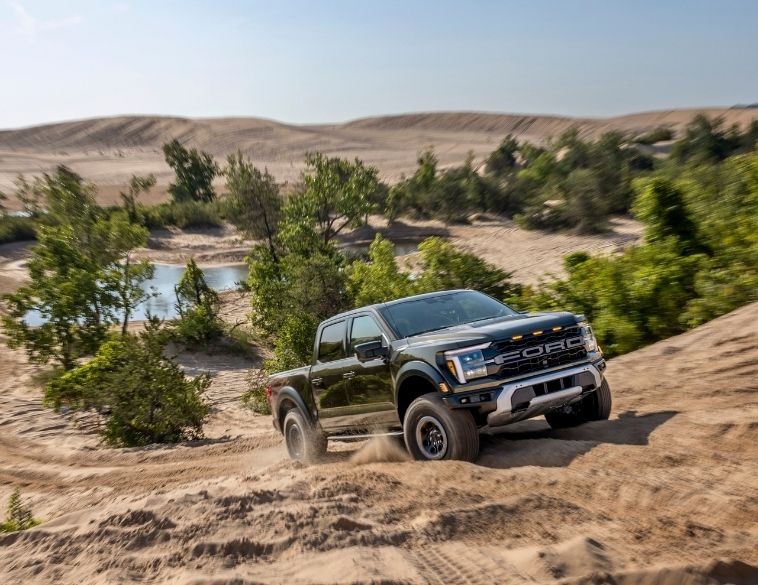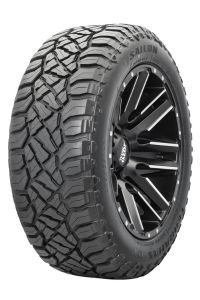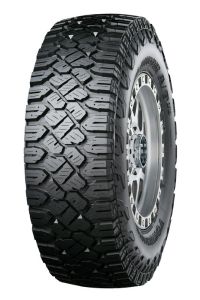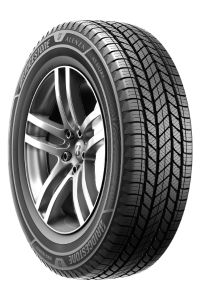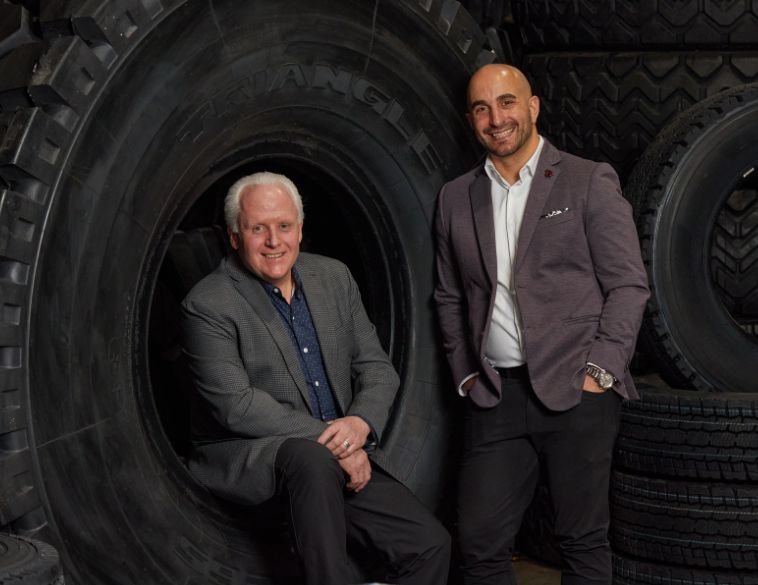Today’s light truck owners expect a lot from their tires.
There used to be a time when light trucks were thought of as work vehicles. No one even considered communing to their office job in a truck, let alone using it to simply run out for groceries or take the kids to school.
Today, however, light trucks are used by those who want to both work hard and play hard. Fleets and contractors buy light trucks because they need vehicles that can carry or tow a significant load, even in rough terrain. Consumers buy them because they like the commanding view and the off-road readiness that light trucks promise.
This trend, in turn, is having an impact on the type of tires manufacturers are bringing to market. “With all these new trucks in the market being used as daily commuting vehicles, ride quality for new trucks has improved greatly over the last decade,” explains Brad Robison, Senior Product Manager of Bridgestone Product Strategy. “New trucks drive and feel more like cars than they used to, and tires are a critical component of the vehicle’s suspension.”
The evolution of the light truck has pushed tire manufacturers to offer LT tires with enhanced ride quality, responsiveness, and better overall performance, Robison adds.
Not only do truck owners want a better ride, but they also want tires that can do more. Comfortable highway driving is no longer enough. Tires have to look good and they have to be able to handle some rough terrain. “More and more of these trucks come with all-terrain tires [rather than] highway tires,” Robison adds. “We are seeing consumers gravitating towards outdoor hobbies like camping, hiking, and off-roading, and vehicle manufacturers are taking notice, offering more off-road packages on trucks, SUVs, and even smaller CUVs.”
Ready for winter
Consumers may want to off-road and go camping in the summer, but when the leaves start to fall off the trees and the white stuff starts to fall from the sky, they want light truck tires that can handle the ice and the snow. That’s why we’re seeing a growing number of LT tires with the 3 Peak Mountain Snowflake (3PMS) logo on them.
“A growing number of pick-up truck owners don’t want to change over to winter tires in the cold months,” explains James McIntyre, VP of Sales, Canada for Sailun Tire America. “So tire manufacturers that don’t make a 3PMS AT (all-terrain) tire or a 3PMS RT (rugged-terrain) tire are not going to sell in this market.”
And while individual consumers may be happy with a light truck tire that’ll get them through all four seasons without the need to swap out their tires before winter, McIntyre says that fleet customers who use their trucks for real work may expect tires that can do even more. “They probably want LT tires that are studded, so they can handle construction zones and the like,” he says.
Fleet customers and contractors also expect LT tires that can handle situations where they’ll need to carry heavy cargo or haul heavy trailers. “That’s why we have both 10ply in our standard LT fitments and why we added 12-ply to our flotation sizes,” McIntyre adds. “This allows the tire to handle more air pressure, which makes it more stable when hauling heavier cargo.”
Electrified vehicles
One of the interesting trends in the light truck market is the electrification of pick-up trucks and SUVs, which translates into new challenges for LT tire manufacturers.
“Although I haven’t seen any LT tires specifically made for electric vehicles, we can be sure that we’ll see them in the future,” says Angela Crivoi, Market Planning Manager, Consumer Segment, Yokohama Tire Canada. “However, even now, we are seeing tires that are rated High Load (HL), which means they’re designed to carry a heavier load.”
Just because electric pick-ups and SUVs are heavier than their ICE counterparts, doesn’t mean that they can’t run on regular tires, Crivoi adds. “As long as the tires have the right load index, they will be able to handle the extra weight of the electric vehicle,” she says.
While the extra weight of an EV may not be an issue, tire lifespan can be. “Electric vehicles eat tires,” says Jack McClure, PLT Segment Manager, North America, Sailun Tire Americas. “Generally, an HT (highway-terrain) tire is going to last longer than an AT (all-terrain) tire, an RT (rugged-terrain) tire or an MT (mud-terrain) tire. And we actually warranty tires with that in mind.”
Truck tire sales
Looking ahead to the next few months, McClure believes that tire retailers should see a healthy demand for truck tires. For years, because of the pandemic and supply chain issues, consumers and corporate customers weren’t able to purchase new trucks. Now, that’s starting to change, which should translate into decent tire sales numbers in the months ahead. “There should be a bump in tire sales,” he says.
Sailun’s McIntyre agrees. “The majority of LT tire buyers are contractors,” he explains, “and if they’re busy, then you’re going to have a good year.”
In the spotlight
- Terramax RT boasts an aggressive tread design, which excels in both on- and off-road conditions. It’s also 3PMS-certified and features ample tread depth along with excellent road manners for daily driving.
- Geolander A/T XD: This commercial grade all-terrain and all-weather tire comes with the 3 Peak Mountain Snowflake logo, which means it can stay on vehicles year-round, and continue to work hard in all weather and road conditions.
- Alenza AS Ultra boasts an exceptionally long tread life and a luxurious driving experience, thanks in part to QuietTrack technology, which allows for a quiet and comfortable ride.

